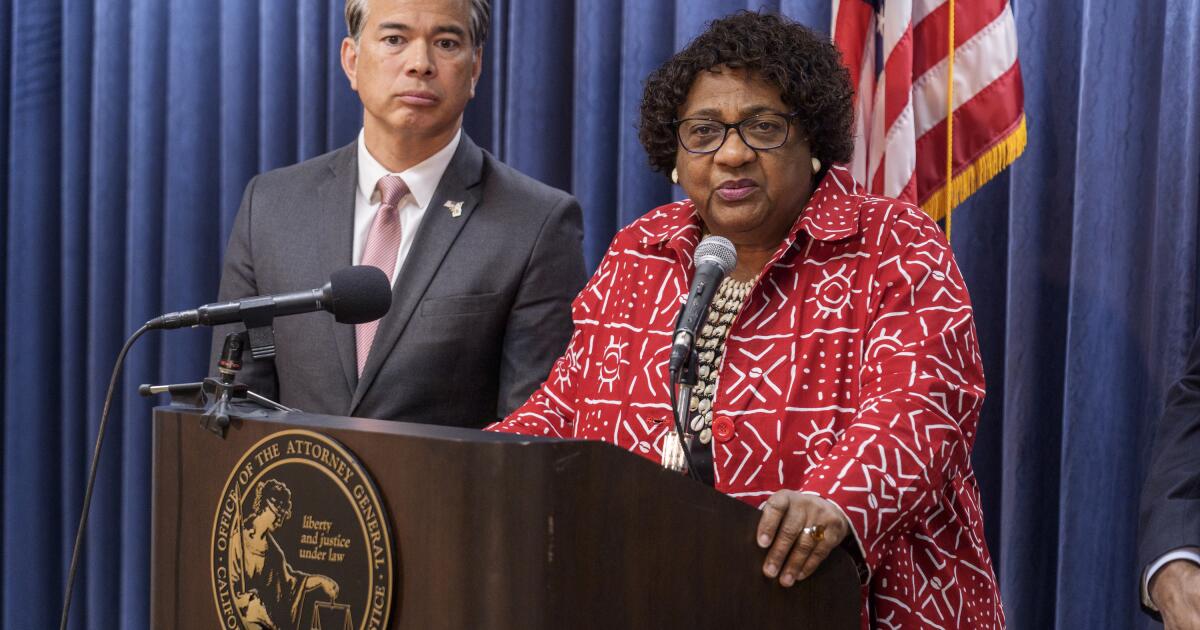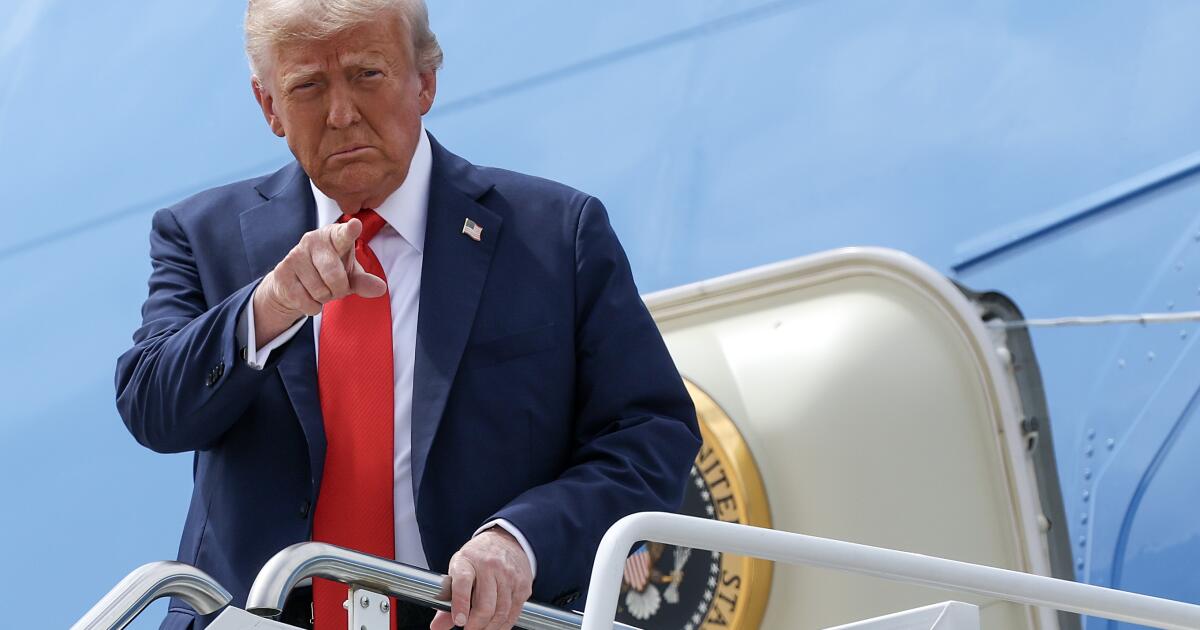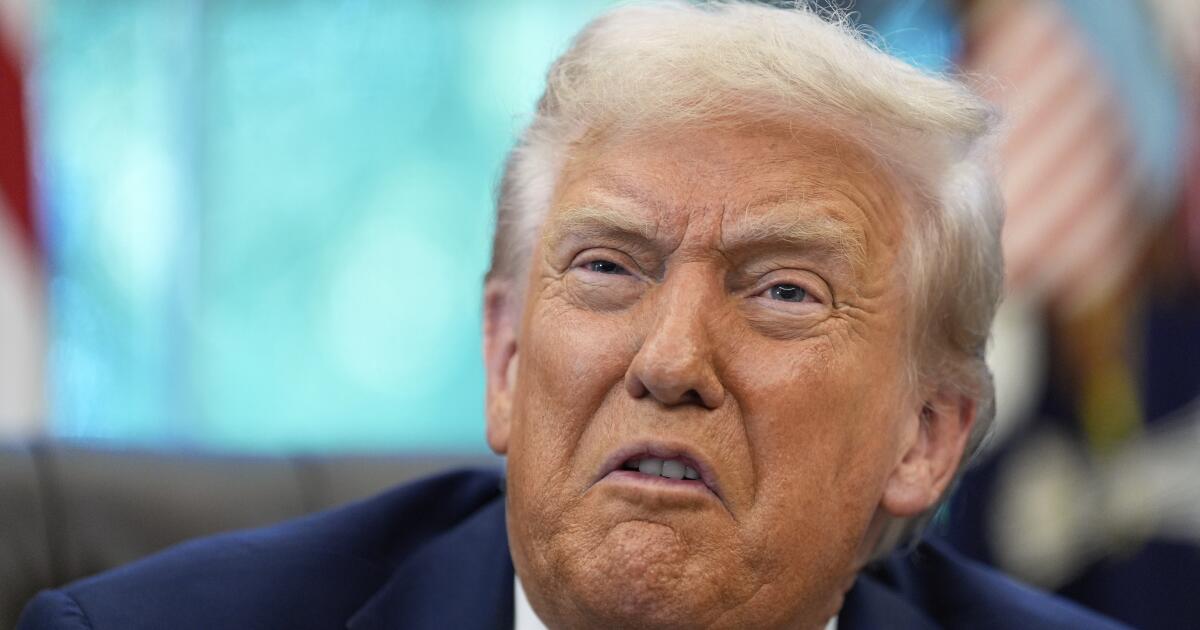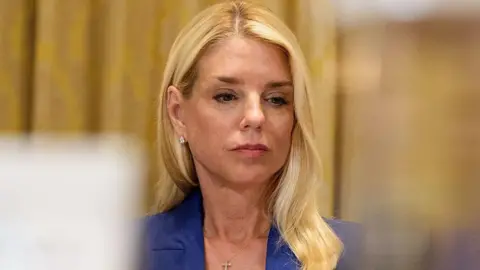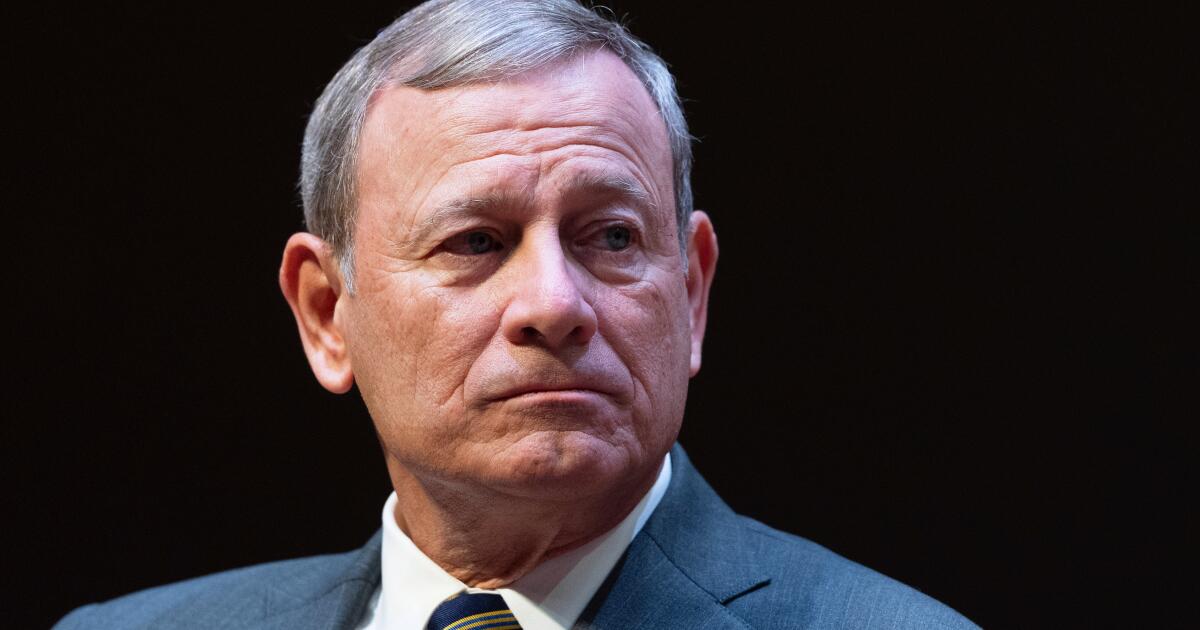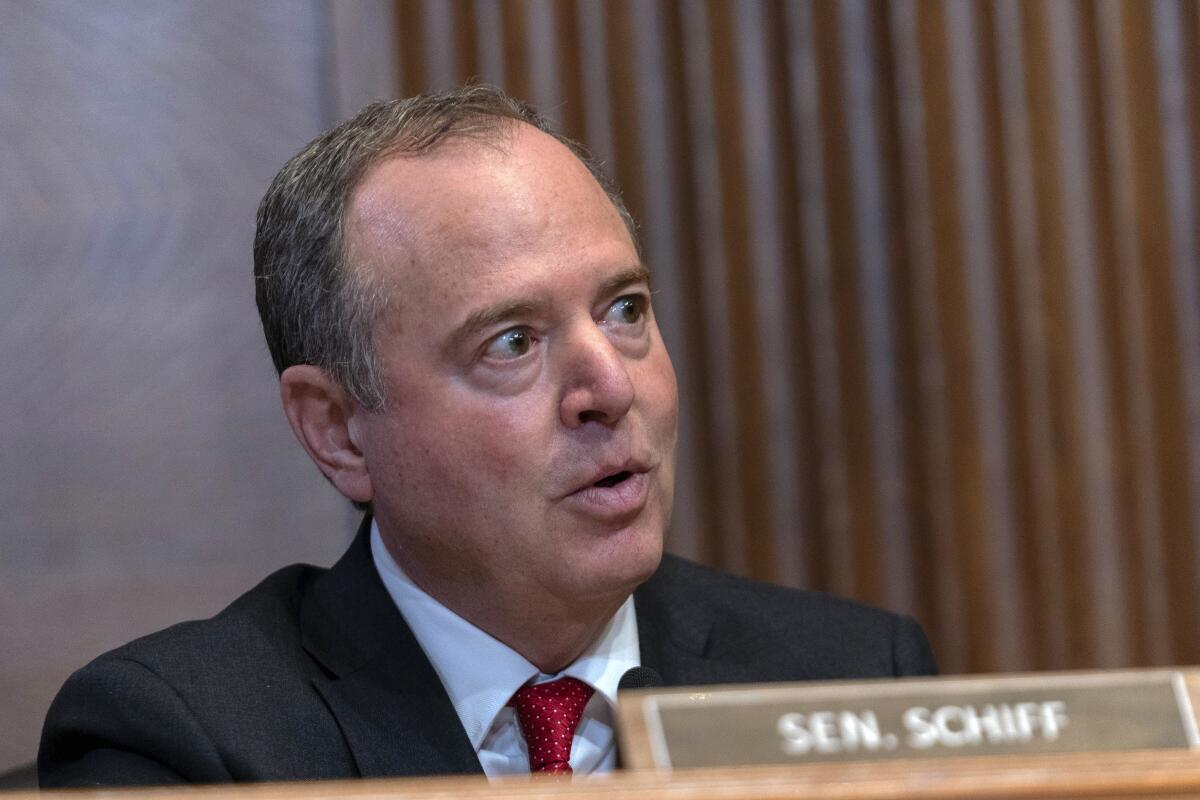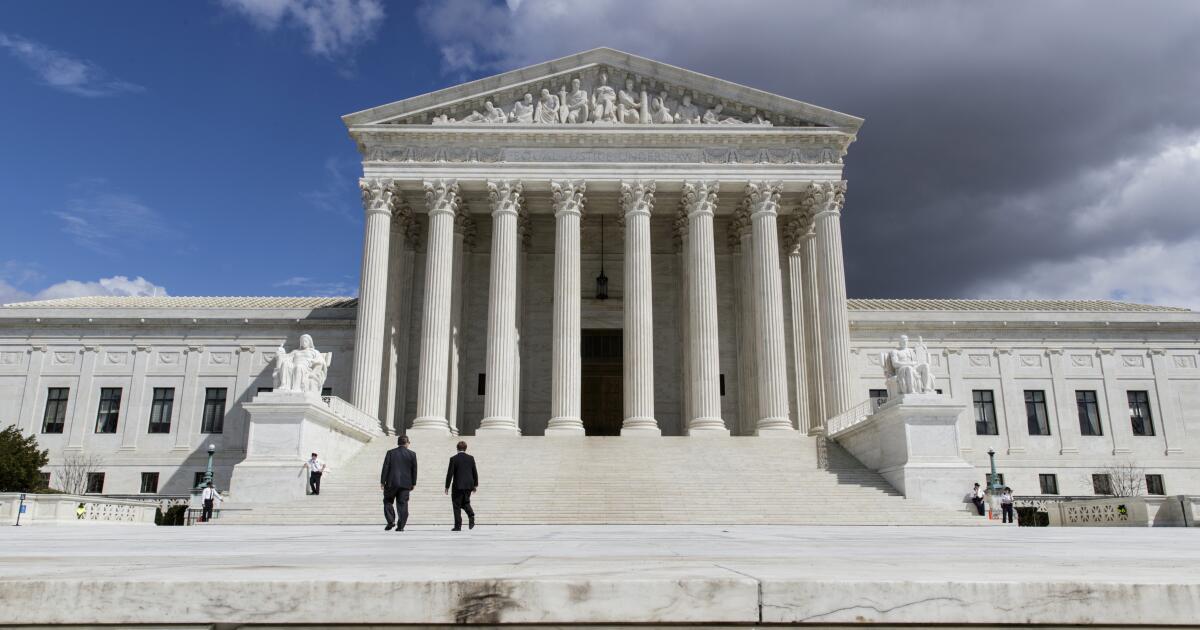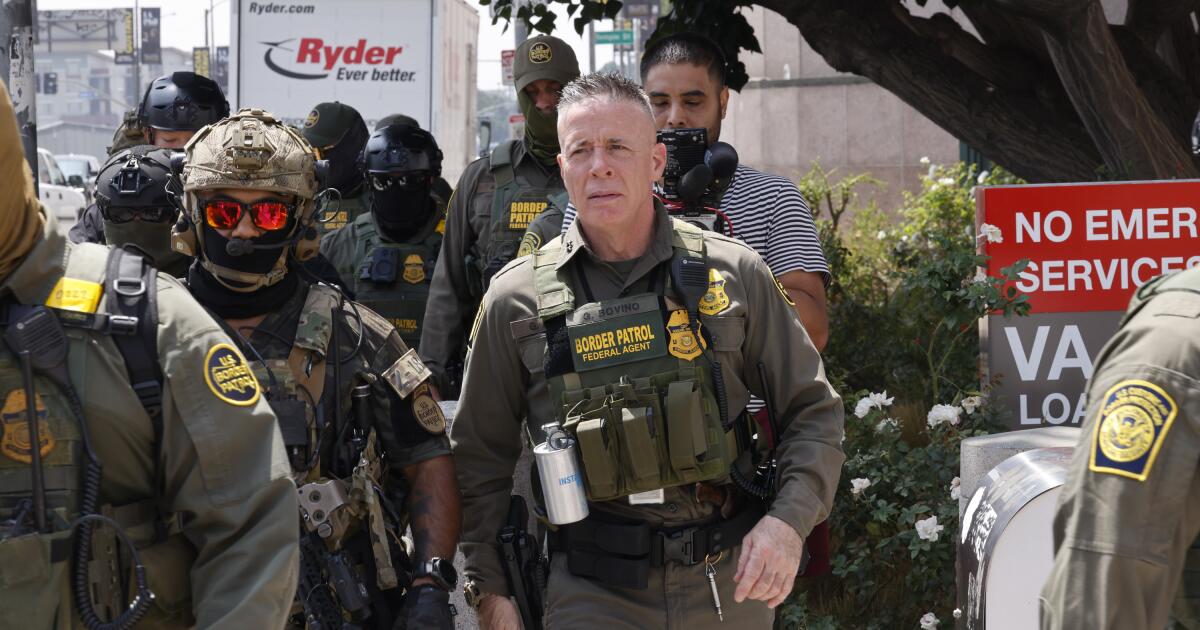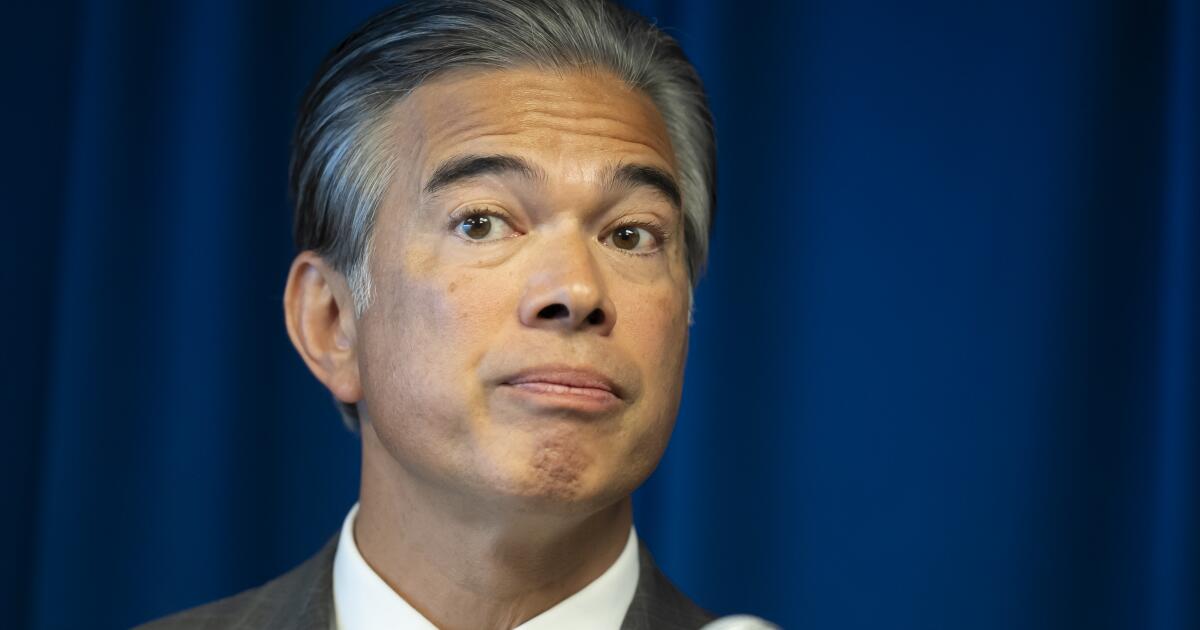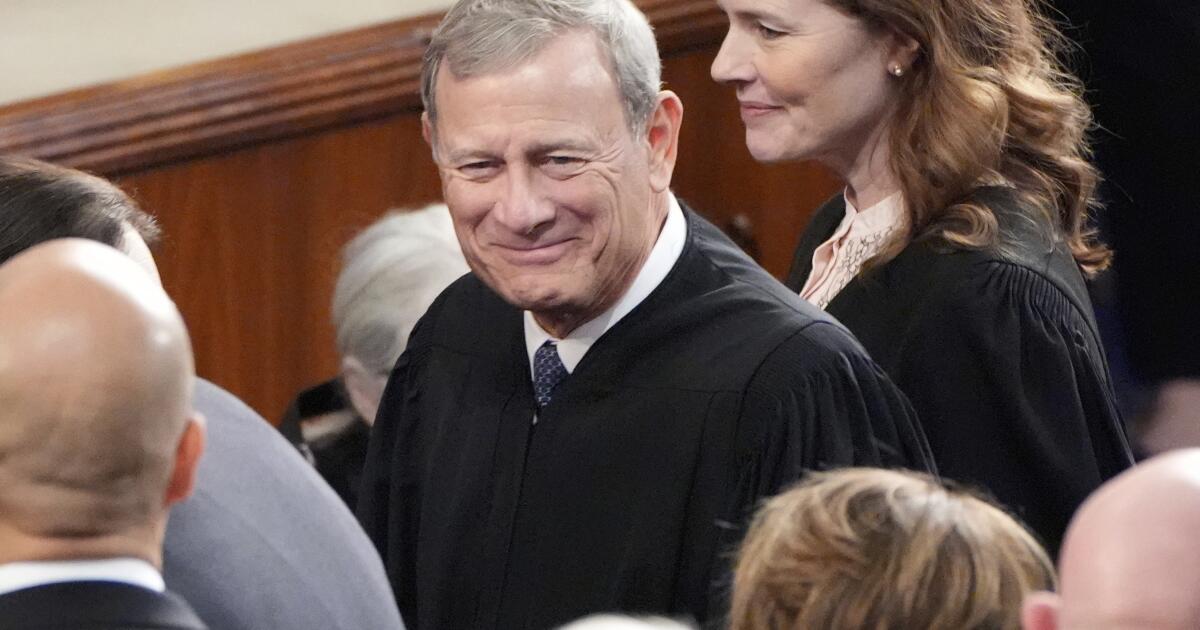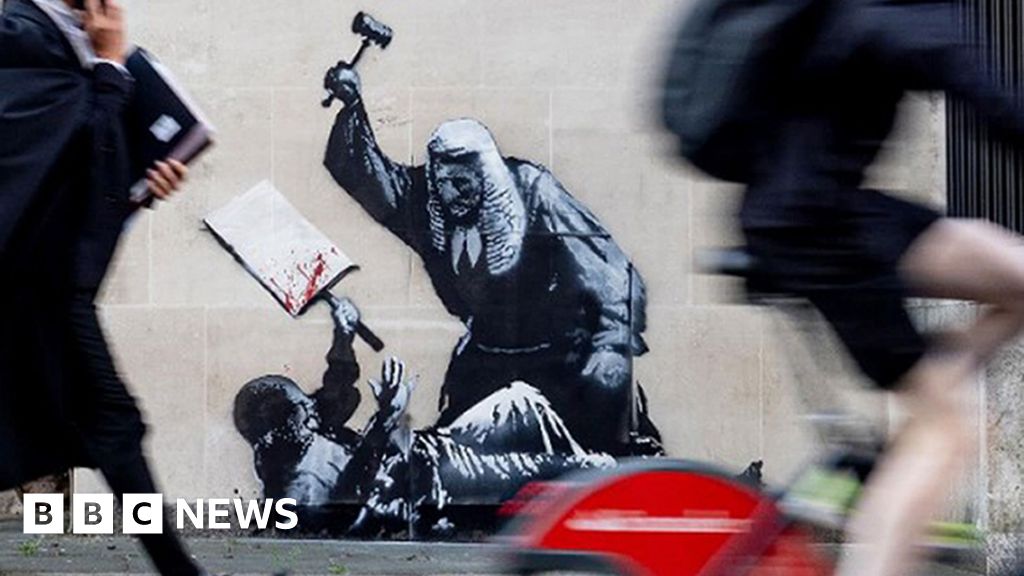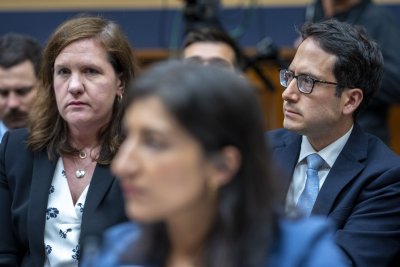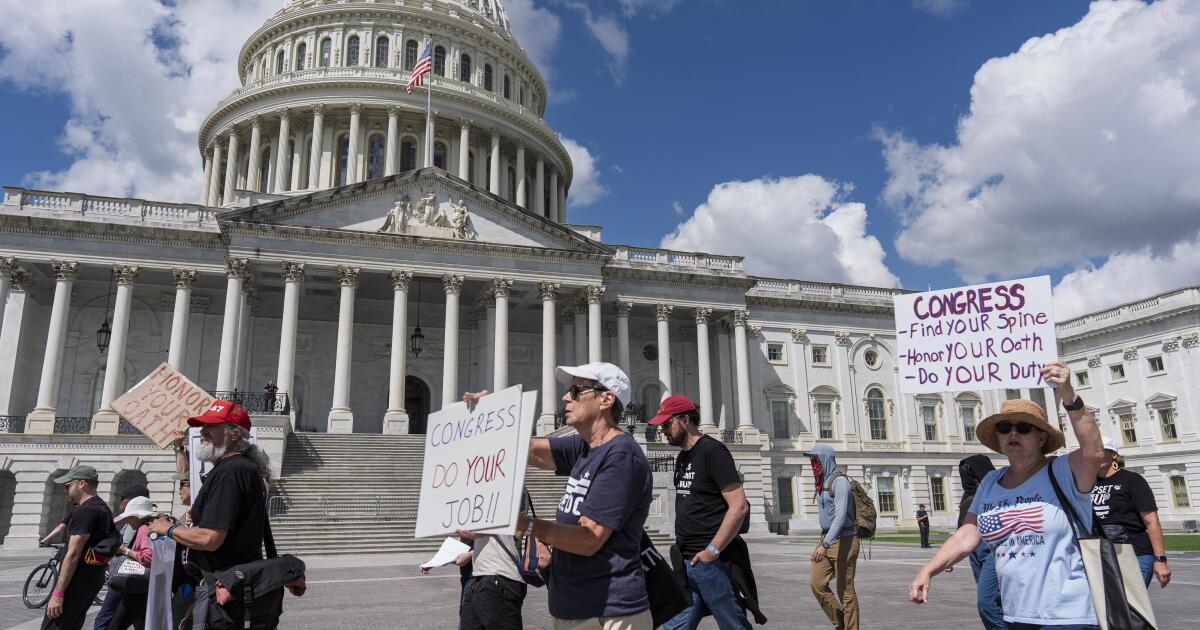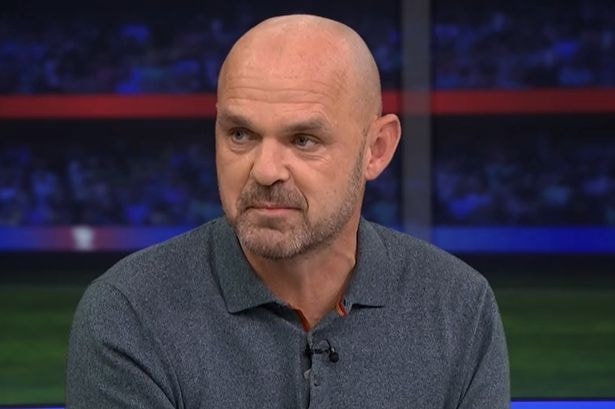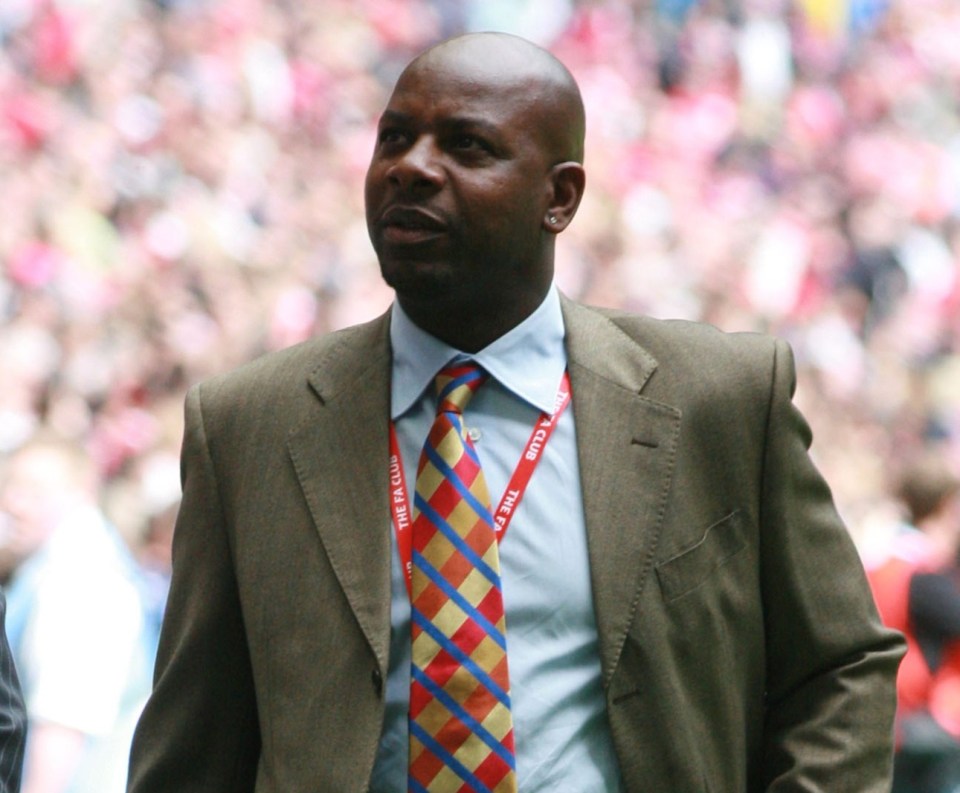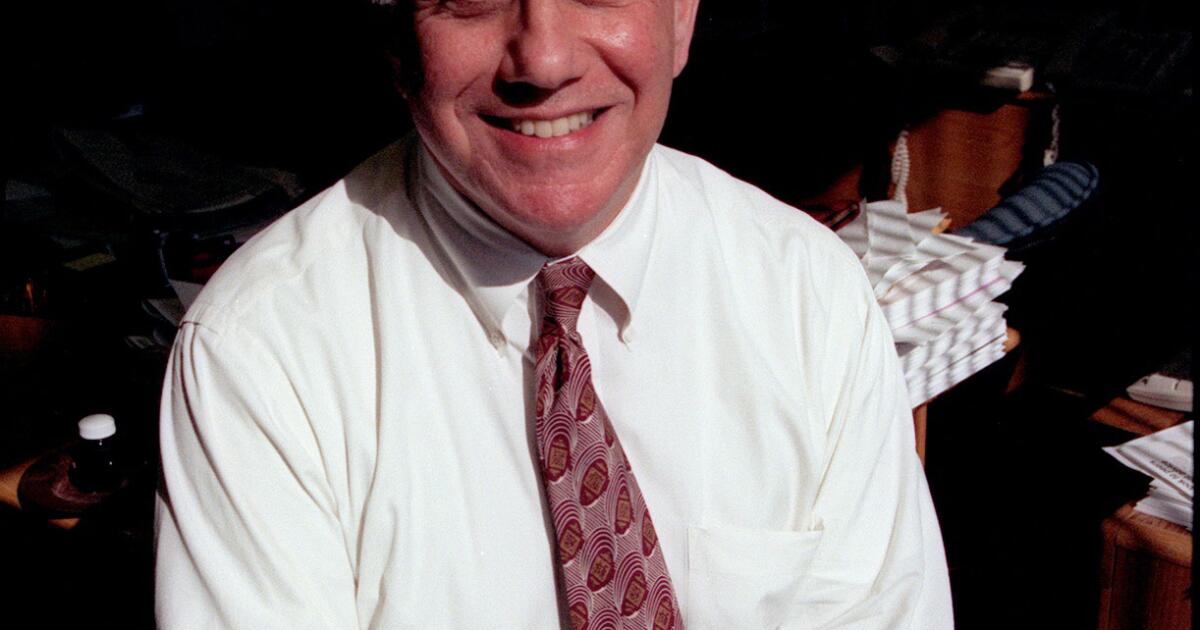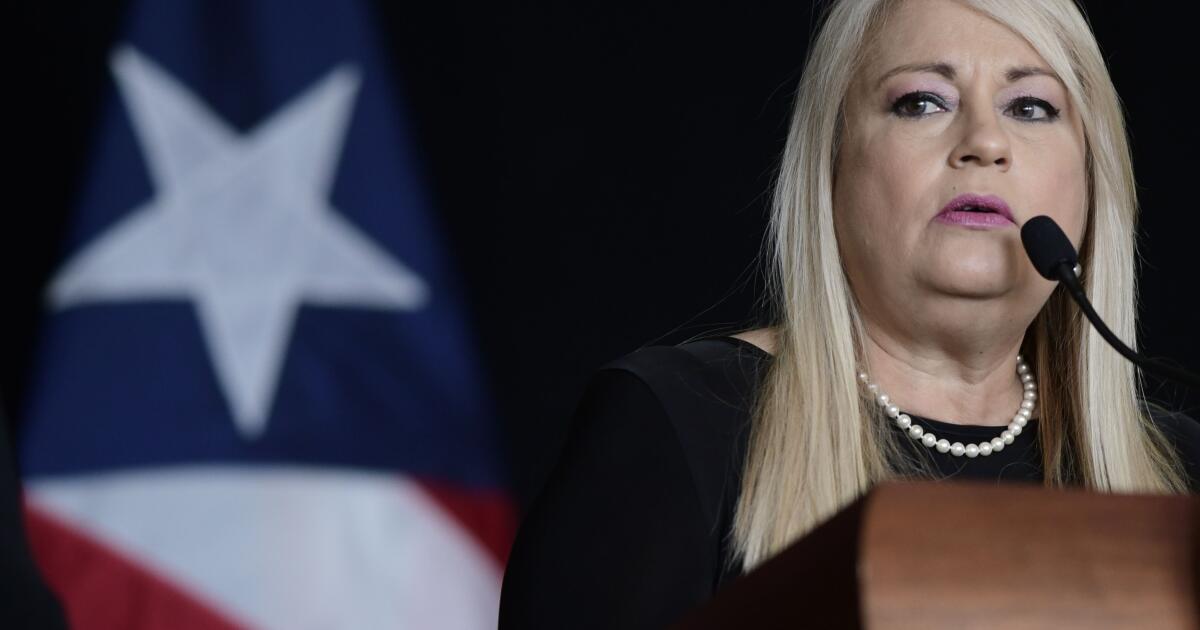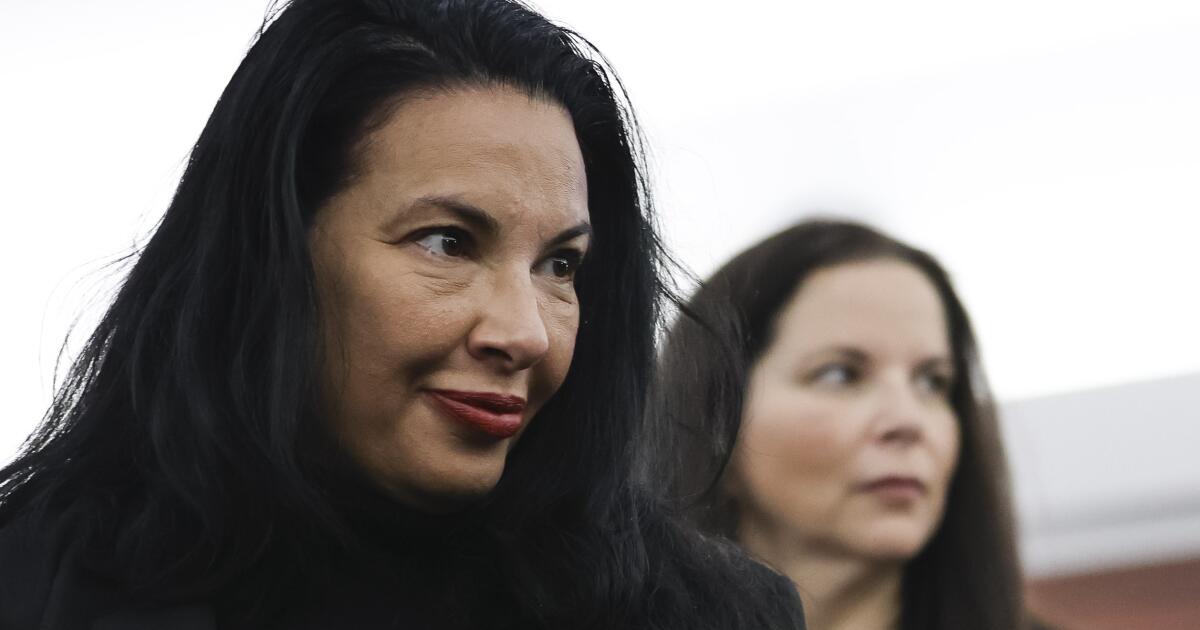DHS accuses veteran of assault after he writes about his arrest
George Retes Jr. grew up in Southern California, and when he turned 18, he decided to serve in the U.S. Army, he said, because he wanted to be part of something bigger than himself.
After a tour of duty in Iraq, Retes moved back to Ventura County this year to find a job and spend more time with his wife and two young children. In February, he began working as a contracted security guard for Glass House Farms at its cannabis greenhouses in Camarillo. Then, on July 10, everything changed as ICE raided Glass House — one of its largest immigration raids ever — while he was trying to get to work.
Federal officers surrounded Retes and pushed him to the ground. He could hardly breathe, he said, as officers knelt on his back and neck. He was arrested, jailed for three days and was not allowed to make a phone call or see an attorney, according to the Institute for Justice, a public-interest law firm that is representing him.
President Trump’s Department of Homeland Security never charged Retes with a crime. But after he wrote an op-ed about his experience this month, DHS started issuing new accusations against him — saying he was arrested for assault during the raid, which the 25-year-old veteran has denied. Retes said he never resisted, and now is being targeted for retaliation because he spoke out about an arrest he sees as unlawful.
“My whole point in sharing my story, I’m trying to warn as many people as possible,” he said in an interview this week. “It doesn’t matter if you’re [politically] left, right, if you voted for Trump, hate him, love him, it doesn’t matter. This affects all of us.”
On July 10, Retes was headed to work around 2 p.m., and the narrow road leading to the farm was logjammed, he said. He weaved his compact white Hyundai forward, past parked cars and protesters, determined to make it to his shift.
He stopped short when he came upon a line of federal officers who blocked his path to the farm. Retes, 25, wearing shorts and a hoodie, got out of his car and tried to tell the federal agents that he worked at the farm.
Agents ignored him, he said, and instead told him to get out of the way. So he got back in his car, and as he tried to back up, agents began lobbing tear gas canisters toward the crowd to disperse them. Retes began hacking and coughing as the gas seeped into his car and federal officers began pounding on his car door. He said they gave him instructions to move that were contradictory.
The agents smashed his car window, pepper sprayed him, pulled him out of the car and arrested him, he said. He was handcuffed, and after his three days in jail, he was released without any explanation.
In his Sept. 16 opinion piece for the San Francisco Chronicle — entitled “I’m a U.S. citizen who was wrongly arrested and held by ICE. Here’s why you could be next” — Retes detailed his ordeal. He has begun to take legal action to sue the U.S. government under the Federal Tort Claims Act. More than 360 people were arrested in the raid, including numerous undocumented immigrants, and one person died.
“I served my country. I wore the uniform, I stood watch, and I believe in the values we say make us different. And yet here, on our own soil, I was wrongfully detained,” he wrote. “Stripped of my rights, treated like I didn’t belong and locked away — all as an American citizen and a veteran … if it can happen to me, it can happen to any one of us.”
Homeland Security officials did not respond to a request for comment or answer questions about their claim of assault.
Previously, an unnamed spokesperson for Homeland Security said he was released without a charge, and his case was being reviewed, along with others, “for potential federal charges related to the execution of the federal search warrant in Camarillo.”
A day after Retes’ opinion piece was published, the agency said Retes “became violent and refused to comply with law enforcement. He challenged agents and blocked their route by refusing to move his vehicle out of the road. CBP arrested Retes for assault.”
The agency denied that U.S. citizens were being wrongfully arrested by Immigration and Customs Enforcement. The post stated that operations were “highly targeted.”
“This kind of garbage has led to a more than 1000% increase in the assaults on enforcement officers,” the agency said.
Retes said he was astounded to learn the agency’s latest claims about July 10 — moments that were captured on video. He says DHS officials are lying.
“I was in shock,” he said. The agency had “an opportunity to say ‘OK, what we did was wrong, we’ll take responsibility.’ … It’s crazy that they’re willing to stand 10 toes down and die on a hill of lying and say I assaulted officers.”
Anya Bidwell, his attorney and senior attorney at the Institute for Justice, said it is significant that the government chose to respond only after his piece was published.
“When people in this country stand up to this government, this government responds with fury,” Bidwell said. “They’re trying to impose their own version of reality. It’s so important for people like George to say, ‘I know who I am and I know what happened to me, you can’t just frame it as something that it’s not.’”
In an aerial video that captured the initial confrontation, Retes is seen driving up to the line of agents. He steps outside of his car and remains by the driver side as he tries to reason with the agents. About 20 seconds later, he gets back in his car as the agents press forward. Within seconds they surround his car, at the same time pressing protesters back as they begin to lob tear gas canisters.
Inside his car, Retes starts to record on his phone. He’s backing up slowly, at an angle, until tear gas makes difficult to see where he’s going, he said.
“I’m trying to leave!” he says as agents bang on his car. There’s a loud crack as they break his car glass window. “OK I’m sorry!”
The agents pepper-spray him and detain him. One video posted online shows a group of agents surrounding Retes, who is face down on the road. Another agent hops in his car and drives it forward and off to the side of the road.
Retes said one agent knelt on his neck and another on his back. He was taken to the Metropolitan Detention Center in Los Angeles, and he was kept in a cell with a protester who was also arrested. While in jail, he said, he missed his daughter’s third birthday.
After he was released, Retes said he was suspended from his job without pay for two weeks because of the arrest, and when he came back, his regular shifts were no longer available. Staying on would make it difficult to see his family, so he had to leave, he said.
He also had to spend about $1,200 getting his car window fixed and detailed from the tear gas, he said.
Despite the Trump administration’s actions, Retes said his faith in the government and accountability for justice remains steady. Just like when he joined the Army, he said, he still hangs on to a sense of unity to stand up for the country’s values.
“I still believe justice can be restored — that’s why I’m standing up and speaking out,” he said. “I think it’s important now more than ever for us to be unified and standing up for our rights together. Especially when they have the audacity to try to lie, especially to the public.”

